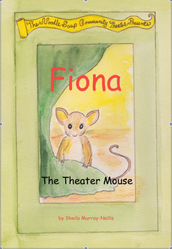Writer's Block. The inability to write. Yes, it sucks, and I've been there a few times myself. Probably the most important thing for all writers no matter what genre they choose, is to use their imagination. Imagination is the key to open the possibilities for amazing characters, and to tell their lives in their story world to your readers. Without it, you can't come up with anything. Not a plot, not a scene, and not even a single character. Sounds depressing, doesn't it? Well, the good news is that this problem can be easily solved.

7 Ways For Writers to Get Inspired
by WordGirl26
Feeling drained? Having problems with Writer's Block? Or struggling to get good story ideas? Read on to discover 7 ways to get inspiration for stories. ;)
Get Inspired!
When it comes to using your imagination and coming up with a terrific short story, screenplay, or that "Great American Novel", writing can be frustrating and a difficult task. This is because some writers have problems with getting inspiration, which in turn makes it hard to come up with reasonable ideas. An idea is obviously the first thing that starts the wheel turning, but how does one get to this point? Well, writers must first be inspired by something. This can range from a random person you get in contact with while taking a walk, to a commercial jingle on television. Some other helpful ways of getting inspired for story ideas are exploring the great outdoors, brainstorming, using your own personal experience, media, starting with a character, starting with the setting your story will take place, and recalling the theme of your story, otherwise known as the message behind your story and why you want to write it?
All of these seven methods can be beneficial in their own ways.
1. EXPLORE THE GREAT OUTDOORS
One of the most helpful ways to get inspiration is to leave your computer, get up from your chair, and go outside to take a nice walk. Many times our minds often starts spinning as we do this. It can help us think clearly and relieve us from the pressure of coming up with a good idea. We also get to observe our surroundings and the people around us. I think the best places to go our public places like mall. There you can see lots of interesting images, people, and things that can stimulate your imagination, such as advertisements. Sounds that you hear or random people's conversations can also get those "creative juices" flowing, and is a good way to evaluate how people talk and act differently based on their individual personalities, which is important for any writer who wants to write believable characters that differ from one another, and not just talking heads.
2. BRAINSTORMING
I know this might seem like not an option when dealing with Writer's block, but it actually is. One of the best things that any writer can do when dealing with Writer's block is to write, even if what you jot down you think doesn't make any sense. Believe me, I've been there, but it is a good start for getting inspiration and 'practice makes perfect'. Time yourself for twenty minutes to write a list of twenty five things you want to be within you story, or as much as you can come up with, and then think about your plot and how your list of items/events/etc. will come into play.
For example, let's pretend the following is a list you've written:
-
Gun
- Dog
- Wagon
- Cowboys
- Robbery
- Murder
- Saloon girl
Who gets murder? Is it the saloon girl? Or a cowboy? Is the gun the weapon of the crime? Who commits the robbery? And etc. Not before long, by having your list and analyzing it, you will have an idea of what will happen in your story and how your plot will unfold.
3. PERSONAL EXPERIENCE
Perhaps there is a situation you have experienced that you are inspired to write about and share to the world. We all have ups and downs in our lives, and using personal experience can be a terrific way in relating your story to your readers. Think back on what happened, how you felt, and whether or not the situation was resolved. These three simple things can be what you use for your overall plotline or story arc.
4. MEDIA: BOOKS, MOVIES, OR TV SHOWS
Whether we want to admit it or not, we all are inspired by media in some way or another. It is all around us and we pretty much see it everyday in books, magazines, movies, TV shows, and so much more. If there is a certain genre you are interested in in writing it is a good idea to read books within your genre of interest, that way you can get a feel of what you could do for you own creative story. Just be sure not to copy any authors' work, as this can get you in big trouble. Movies are also a great way to get inspiration, particularly movies that revolve around the type of story you're interested in writing. For example, if you're interested in writing mysteries, it would be a good idea to watch mystery movies or TV shows, such as Diagnosis Murder, Murder She Wrote, Agatha Christie's Hercules Poirot mysteries, and various others, so that you can observe how a mystery is unfolded and how to go about setting up a good plot with twists and turns that can surprise your readers. If you are watching a DVD movie, it could also be helpful to use subtitles so that you can see the dialogue and how it's written.
5. THINK CHARACTER
Who will be the protagonist or main character of your story? Will there be other characters involved? Thinking about the character(s) that will be introduced to your readers is an excellent way to gain inspiration, as they are the driving force that will carry your story plot along. Without characters there practically is no story to tell. Begin with names, just like many expecting parents do before their child is born. Look up names on sites like babynames.com to find out what different names mean and build upon it to make up your characters individual personalities. Jot down physical descriptions, backstories, and their motivations. Ask yourself questions. What do they look like? How old are they? When were they born and where? Do they die in the story? Who do they love? What do they want? What are their goals in life and why?
6. THINK SETTING
Where will your story take place? What is the physical setting? Will it take place in London, England? Or Mobile, Alabama? What is the temporal setting? Is it during a sizzling summer in the 1960s, or a bitterly cold winter in the 1800s? Is the setting a fictional city or a real country town? Think about the setting for your story and how it will impact your characters.
7. THINK THEME
Perhaps there is a central message you want your story to revolve around, or a lesson you want to make known to your readers. Think about what theme you will use and based on your theme how your characters will react with one another within the story's plot. This method can be very helpful in getting inspiration, as well as figuring out why you want to write your story?
Using these seven methods and many others can help you gain inspiration in no time. I hope helped someone who might be stuck in the dreaded Writer's Block, or any writers who just needed some ideas to boost their creativity and get started on their stories.
So, this end my second blog post.
Have fun and Write on! 😉
THE NEXT POST: THE STAGES OF A STORY. Want to find out the main steps for a complete story? Stay tuned to find out more. ;)
Check out this cool video for Writer's Block!
You might also like
How to Self Publish a Children's BookDeciding to self publish a children's book may seem simple, but there are man...



 How to Write Realistic Character Dialogueon 10/07/2014
How to Write Realistic Character Dialogueon 10/07/2014
 Characterization: Setting is a character tooon 09/22/2014
Characterization: Setting is a character tooon 09/22/2014
 Characterization: Character Emotionon 09/18/2014
Characterization: Character Emotionon 09/18/2014
 Characterization: Types of Characterson 09/15/2014
Characterization: Types of Characterson 09/15/2014

Comments
I like your writing style and tips are useful. Thank you.